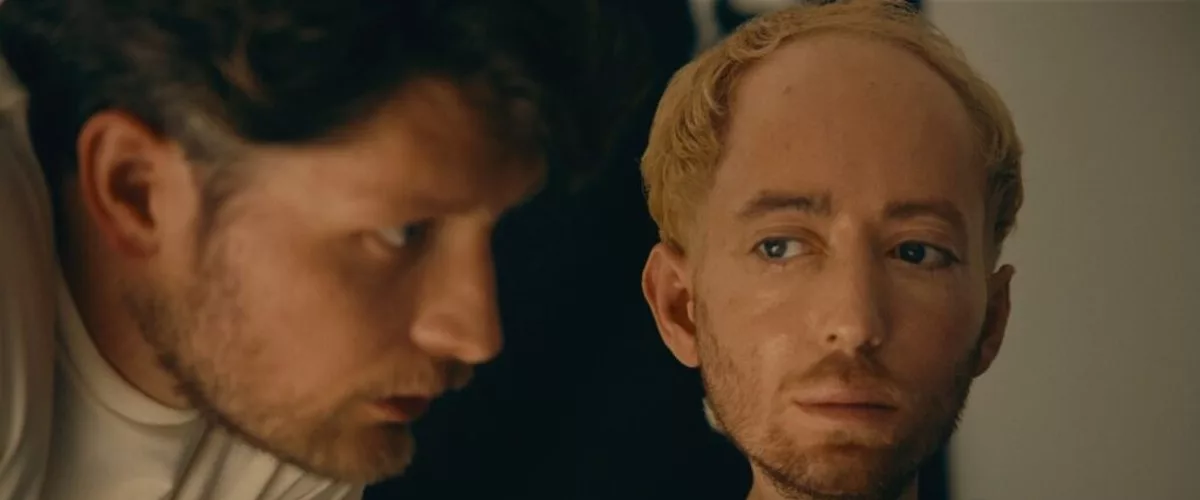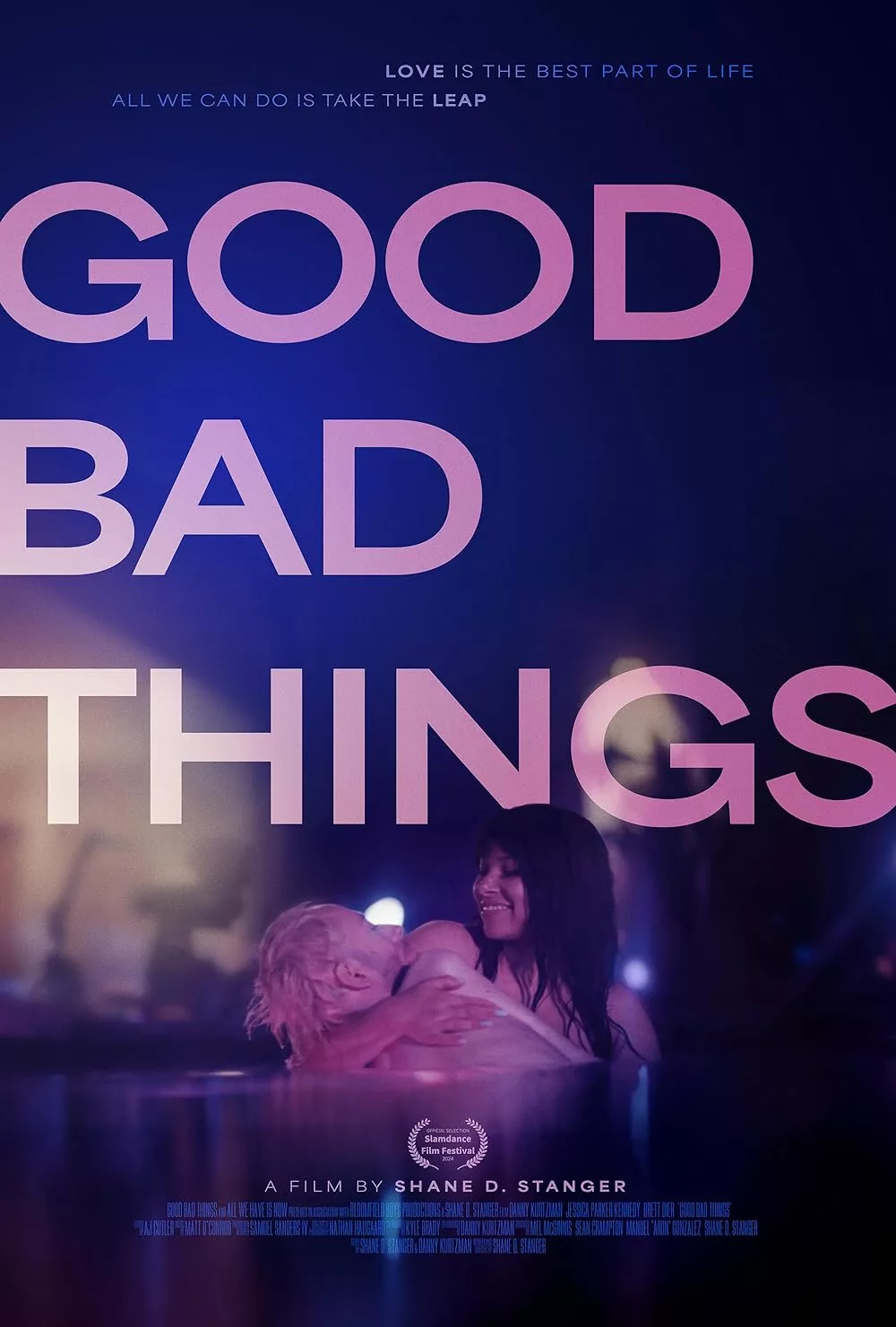"Good Bad Things" is an intimate, small story about the gigantic issue that challenges and terrifies us all: the collision between the desperate need to be seen and loved and the fear that what people might see will repel rather than attract them. Written by lifelong friends Shane D. Stanger (who also directed) and Danny Kurtzman (who also stars as a character named Danny), it is partly inspired by Kurtzman's experiences as a person with muscular dystrophy.
The Danny of the movie runs a tiny advertising and marketing company with his best friend and roommate Jason (a very appealing Brett Dier, deftly balancing bro-ness with genuine friendship and loyalty). They are almost out of money and hoping to pitch a dating app called Rubi, a big client that could make all the difference for them. We have seen that Danny has a lot of very good, devoted friends and an ex named Bianca who really hurt him. The people who surround him are comfortable and inclusive. They notice when a venue is not accessible by scooter and carry him up and down stairs without making it into a big deal. But his friends drink a lot and are not always aware that Danny's system cannot handle more than a couple of beers. More than that, they do not notice that Danny cannot help watching their casual and more romantic connections with a sinking feeling that he will be relegated to the "friend zone" for life.
Danny creates an account on Rubi "for research," not admitting to himself that somewhere deep inside, he might be hoping to find a girlfriend. He crops a photo to show him only from the shoulders up, concealing the scooter, posts his profile, and, he admits to Jason, he swipes on a few. He gets one response from a warm-hearted photographer named Madi (a heartfelt performance from Jessica Parker Kennedy). After discussing whether and how to share his disability, he takes a deep breath and mentions it in a response to Madi. He's heartened when she seems undaunted and agrees to meet.
The core elements of the classic romantic story are heightened here because Danny's disability is a physical manifestation of the dance of intimacy. It becomes very literal when Madi first invites him to join Jason and the two friends modeling for him in a ‘shroom-enhanced Palm Springs skinny dip that leads to Danny posing in the nude.
Kurtzman, who never acted or saw a movie set before Stanger invited him to collaborate, has a thoughtful screen presence. The Danny of the story is confident in his profession but often sensitive and unsure with people. Kurtzman, the performer, is able to show us all of those layers. Danny's friends think they are very fond of him and very tuned in, but even Jason, who lifts, bathes, and encourages Danny (the friendship), never really sees Danny's loneliness (the bro-ness) and the gulf he feels between himself and the abled world.
Stanger and Kurtzman were wise to make Madi a photographer. Her passion and her profession are to literally see what others do not. She's almost a Psyche figure holding up a candle to see Cupid. She sees the beauty in a body most people would consider misshapen. She also sees Danny as a man, not a permanent friend zone. And as he begins to see himself through her eyes, his spirit expands. At first, he only wears black. But when he and Madi have a sweet moment, Danny uses his skill to help her, showing her that part of himself, he is wearing the color of life and renewal: green. The inversion of the sounds of their two names is also a subtle suggestion of their connection.
The script is not as strong as the performances, especially for the part often the weakest in films about love. The conversations between Danny and Madi do not do as much as they might hope to show us why they begin to feel tenderly toward one another. However, the link between Danny's/Madi's relationship and the meeting with Rubi is well handled, with Danny giving an excellent speech after Jason initially messes up the pitch. The scene that continues to resonate, though, is when Danny and Madi hit a rough patch, and Danny allows his deepest emotions to show, sobbing on his father's chest (an excellent Gale Hansen). Danny admits he is terrified. "Things need to change for things to get better, and that's so scary. What if this is one of those good bad things?" That's a tough question to answer, but this movie is one of those good good things.




















